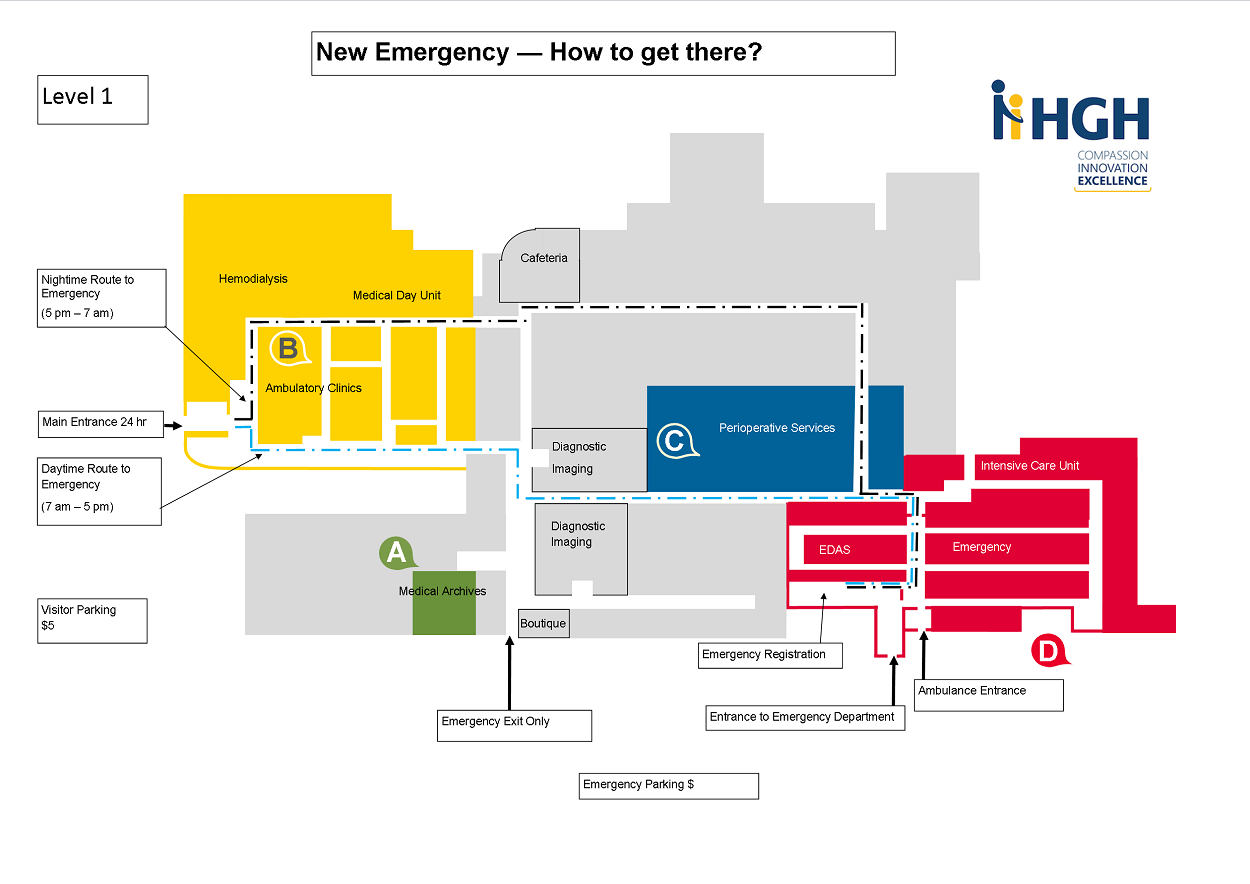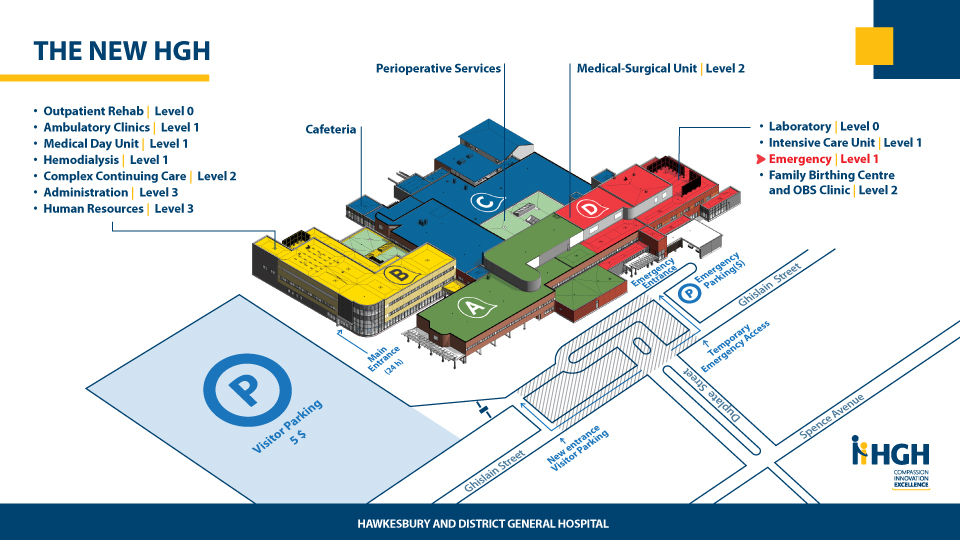Due to the pandemic, we have modified certain processes, however, the Emergency Department remains open 24 hours a day and provides safe care.
- We offer the same level of emergency medical care as before.
- Do not neglect your health. If you are worried about your condition, please come to the Emergency.
The following preventive measures will apply until further notice:
- All persons arriving will be verbally screened through a questionnaire.
- You will have to disinfect your hands and wear the provided mask.
- Patients coming to the Emergency cannot be accompanied.
- Only one parent can accompany a sick child coming to the Emergency for care.
For more details on current changes due to the pandemic, please visit Information on COVID-19.
About the Emergency Department
The Emergency Department at Hawkesbury and District General Hospital (HGH) provides urgent medical care for adults and children with acute injuries or illness.
Our physicians and nurses treat close to 60,000 patients yearly in our acute and ambulatory sections. Urgent cases have access to X-ray, ultrasound, CT scan and laboratory services.
The Emergency Department (ED) operates 7 days a week, 24 hours a day.
When should you come to the Emergency?
- You should come to the ED when you have a health problem that requires urgent attention. If you are unsure, please call Telehealth Ontario at 1-866-797-0000 or Info-Santé Québec at 8-1-1.
- It is not appropriate to come to the ED for form completion, referrals or second opinions.
- Please note that we do not renew prescriptions or provide routine ambulatory care or follow-up for chronic problems.
When should you call an ambulance to come to the hospital?
- If you have a serious or life-threatening condition like a stroke, a heart attack or serious trauma, you should call 9-1-1.
- If your condition makes walking or driving too dangerous and you cannot have someone take you to the hospital, call 9-1-1 for an ambulance.
Emergency Department services do not include
- Prescription renewal for:
- Narcotics (morphine, fentanyl, hydromorphone, oxycodone, etc.)
- Benzodiazepines (lorazepam, diazepam)
- Medical cannabis or other controlled substances
- Medications for the treatment of a chronic health condition (hypertension, cholesterol) for a period of more than 14 days
- Prescription tests to diagnose certain non-urgent chronic health conditions, for example, apnea test, non-urgent magnetic resonance imaging, non-urgent CT scan, EEG or EMG
- Follow-ups examinations for chronic illnesses, for example chronic tendonitis
- Completion of insurance forms other than:
- Attestation form of work stoppage generated by our computer system
- CSST and WSIB forms
- Production of medico-administrative expertise reports
I need medical care, but it’s not an ‘emergency’. Where do I go?
- Going to a walk-in clinic or a family doctor would be the best option.
- To find one of them, check our Resources and links section.


